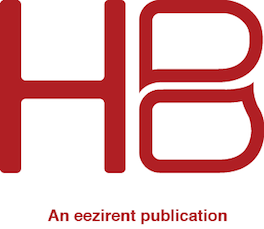
12 Mar Key and holding deposits
A key deposit is a refundable charge paid by a prospective tenant that enables them to take the keys to a property and inspect it independently. A receipt for the deposit must be issued, and the funds refunded as soon as the keys are returned.
I strongly discourage the use of key deposits and allowing an applicant to do an independent inspection. They are simply too risky in terms of security and liability issues. What if the applicant damages the property? What if they injure themselves, or claim to injure themselves during the inspection? What if the keys are copied? If your property is with an agent that allows independent inspections then that agent is not protecting your interests.
Accompanying an applicant during the inspection provides an excellent opportunity to begin assessing their suitability as a tenant. It also gives the landlord the chance to ‘sell’ the merits of the property and to communicate their expectations as the lessor.
A holding deposit is an amount of money (usually the equivalent of one week’s rent) that is paid by the applicant whilst their application is being assessed, or between the time they are approved and the time the lease is signed.
Holding deposits can be a very useful tool giving peace of mind to all parties during the leasing process. From a landlord’s perspective a holding deposit will give some compensation should the applicant not proceed with the lease. This is particularly helpful in a market with high vacancy rates and less competition between tenants.
For applicants, the payment of a holding deposit will help them secure a lease without being ‘gazumped’. This can be beneficial in a tight rental market with strong competition between tenants.
Holding deposits are recommended if there is a delay of more than a couple of days between the time an applicant verbally accepts a property and the signing of the lease.
This is your state by state guide to the basic rules of holding deposits –
ACT – Not permissible. The Act states that “A lessor must not require or accept a holding deposit.”
NSW – The tenant’s application must be approved. The deposit can be no more than 1 week’s rent. A receipt must be issued. The holding deposit is applicable for 7 days (or a longer period agreed by both parties). The lessor cannot offer the property to any other applicant during this time and is obliged to proceed with the lease. The landlord must refund the deposit if they decide not to proceed with the lease. The tenant will forfeit the deposit if they do not proceed with the lease, unless the landlord has provided false or misleading information about the property. The holding deposit must be applied as rent if the lease does proceed.
NT – There are no legislative guidelines relating to holding deposits.
Qld – A copy of the lease with any special terms and conditions as well as applicable by-laws must be given to the tenant before a holding deposit can be accepted. The ‘cooling off’ time period for the holding deposit is 48 hours unless agreed by the parties and must be recorded on the receipt. No other application can be accepted during the holding period. The deposit is refunded in full if the tenant withdraws during the holding period, and must be refunded within 3 days. If the lease proceeds, the deposit is to be applied as bond, with any surplus funds to be applied as rent in advance.
SA – The lessor can require payment for an ‘option’ to lease the property. The details of the option are to be agreed by both parties. If the option proceeds, the funds must be applied as rent. The lessor can retain the fee if the tenant decides not to enter into a lease. The fee must be refunded if the landlord decides not to proceed.
Tas – A holding fee can be entered into if the tenant needs to hold the property for more than 7 days.
Vic – The lessor can ask for a holding fee. It must be refunded when the agreement is signed. If no lease agreement is entered into after 14 days the fee must be refunded by the next business day.
WA – An ‘option fee’ can be asked for at the time the tenant lodges their application. The fee must be refunded in full if the lessor does not approve the application. The fee can be applied as rent if the lease does proceed. The fee is capped at either $50 or $100 depending on the rent and location of the property.



Sorry, the comment form is closed at this time.